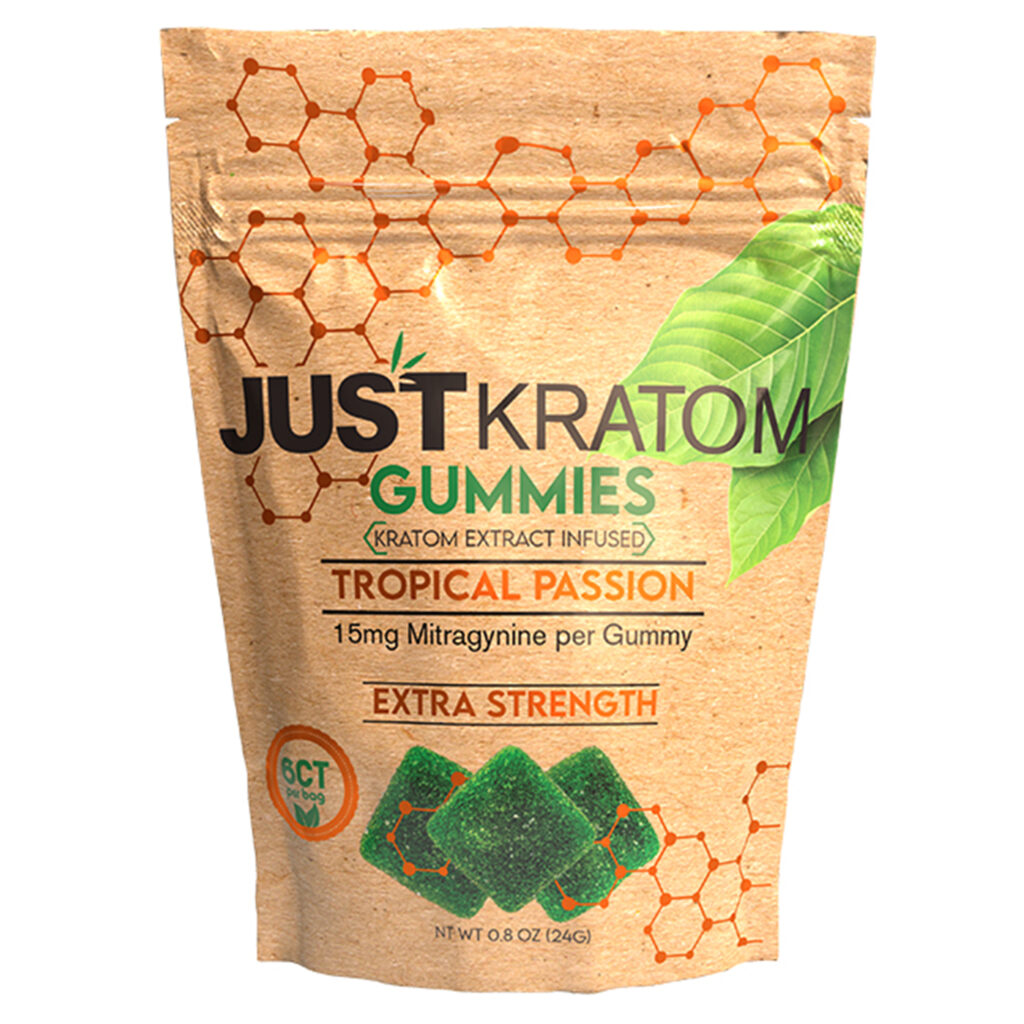Potential Benefits
Chronic pain can significantly impact an individual’s quality of life, affecting their mobility, sleep, and overall well-being. Exploring alternative pain management options has become increasingly important, and kratom gummies have emerged as a potential solution. These edible treats offer a convenient and discreet way to access the purported pain-relieving properties of kratom, a plant traditionally used for centuries in Southeast Asia.
Pain Relief Mechanisms
Kratom gummies are believed to provide relief from chronic pain through several mechanisms. One proposed mechanism is the activation of opioid receptors in the brain and nervous system. Kratom contains compounds known as mitragynine and 7-hydroxymitragynine, which interact with these receptors, potentially reducing pain perception and inducing a sense of euphoria.
Additionally, kratom may have analgesic effects by influencing neurotransmitters involved in pain signaling, such as serotonin and dopamine. By modulating these neurochemicals, kratom could help alleviate both acute and chronic pain sensations.
Experience Reports
Experience reports from individuals suffering from chronic pain suggest that kratom gummies can be beneficial. Many users report a reduction in pain intensity, improved mobility, and enhanced sleep quality after consuming kratom gummies. Some individuals also describe experiencing mood elevation and reduced anxiety.
It’s important to note that these are anecdotal accounts and further research is needed to confirm the effectiveness and long-term safety of kratom gummies for chronic pain management.
Preclinical Research
Preclinical research on kratom has shown some promising results regarding its potential benefits for pain management.
- Studies in animal models have demonstrated that kratom extracts can reduce pain responses to various stimuli, including inflammatory and neuropathic pain.
- Research suggests that the analgesic effects of kratom may be mediated through interactions with opioid receptors, as well as modulation of neurotransmitters involved in pain processing.
While these findings are encouraging, it’s important to remember that preclinical studies do not directly translate to human benefits. More research is needed to determine the efficacy and safety of kratom for chronic pain management in humans.
Dosage and Administration
Dosage and administration are crucial considerations when exploring any new therapeutic option, and kratom gummies are no exception. Factors such as individual pain levels, body weight, metabolism, and tolerance can influence the appropriate dosage. Starting with a low dose and gradually increasing it under medical supervision is recommended to assess individual responses and minimize potential adverse effects.
Recommended Dosages

Dosage recommendations for kratom gummies can vary depending on individual factors such as pain severity, body weight, and tolerance. It’s generally advised to start with a lower dose (e.g., 1-2 grams of dried kratom leaf equivalent) and gradually increase it until the desired effect is achieved.
It’s important to listen to your body and avoid exceeding recommended doses, as excessive consumption can lead to adverse effects such as nausea, vomiting, dizziness, and anxiety.
Consulting with a healthcare professional before using kratom gummies is crucial to determine the appropriate dosage and assess potential interactions with other medications or health conditions.
Factors Affecting Dosage
Dosage and administration are crucial considerations when using kratom for pain management. Factors such as individual pain levels, body weight, metabolism, and tolerance can influence the appropriate dosage. It’s generally recommended to start with a low dose (e.g., 1-2 grams of dried kratom leaf equivalent) and gradually increase it until the desired effect is achieved.
It’s important to listen to your body and avoid exceeding recommended doses, as excessive consumption can lead to adverse effects such as nausea, vomiting, dizziness, and anxiety.
Consulting with a healthcare professional before using kratom is crucial to determine the appropriate dosage and assess potential interactions with other medications or health conditions.
Administration Methods
Dosage and administration are crucial considerations when using kratom for pain management. Factors such as individual pain levels, body weight, metabolism, and tolerance can influence the appropriate dosage.
It’s generally recommended to start with a low dose (e.g., 1-2 grams of dried kratom leaf equivalent) and gradually increase it until the desired effect is achieved.
It’s important to listen to your body and avoid exceeding recommended doses, as excessive consumption can lead to adverse effects such as nausea, vomiting, dizziness, and anxiety.
Consulting with a healthcare professional before using kratom is crucial to determine the appropriate dosage and assess potential interactions with other medications or health conditions.
Kratom gummies offer a convenient method of administration for those seeking an alternative approach to pain management. However, it’s essential to remember that individual responses to kratom can vary significantly.
Starting with a low dose and gradually increasing it under medical supervision allows for personalized dosing and helps minimize the risk of adverse effects.
Safety and Side Effects

Safety and potential side effects are crucial considerations when exploring alternative pain management options like kratom gummies. While anecdotal reports suggest benefits, scientific research on long-term safety is limited. It’s important to consult with a healthcare professional before using kratom, as it may interact with other medications or exacerbate existing health conditions.
Possible Adverse Reactions
While kratom gummies are touted for their potential pain-relieving effects, it’s essential to understand the potential side effects and risks associated with their use. Like any substance, kratom can cause adverse reactions in some individuals.
Possible side effects of kratom include nausea, vomiting, diarrhea, constipation, dizziness, headaches, increased heart rate, anxiety, and insomnia. In some cases, kratom can also lead to more serious complications such as liver damage, respiratory problems, or dependence.
It’s crucial to note that the safety and long-term effects of kratom are still under investigation. More research is needed to fully understand the potential risks and benefits associated with its use, particularly for chronic pain management.
Drug Interactions
Kratom gummies can interact with certain medications, potentially leading to adverse effects. It’s crucial to inform your healthcare provider about all medications you are taking, including prescription drugs, over-the-counter medications, and herbal supplements, before using kratom gummies.
Potential drug interactions include:

- Opioid analgesics (e.g., morphine, oxycodone): Combining kratom with opioid pain relievers can increase the risk of respiratory depression and overdose.
- Sedatives (e.g., benzodiazepines): Kratom’s sedative effects may be enhanced when taken with sedatives, potentially leading to excessive drowsiness or impaired cognitive function.
- MAOI antidepressants (e.g., phenelzine, tranylcypromine): Kratom can interact with MAOIs, increasing the risk of serotonin syndrome, a potentially life-threatening condition characterized by symptoms such as agitation, confusion, rapid heart rate, and high blood pressure.
It’s important to exercise caution and consult with your healthcare provider before using kratom gummies if you are taking any medications, particularly those that affect the central nervous system or liver function.
Contraindications
Safety and potential side effects are crucial considerations when exploring alternative pain management options like kratom gummies. While anecdotal reports suggest benefits, scientific research on long-term safety is limited. It’s important to consult with a healthcare professional before using kratom, as it may interact with other medications or exacerbate existing health conditions.
While kratom gummies are touted for their potential pain-relieving effects, it’s essential to understand the potential side effects and risks associated with their use. Like any substance, kratom can cause adverse reactions in some individuals.
Possible side effects of kratom include nausea, vomiting, diarrhea, constipation, dizziness, headaches, increased heart rate, anxiety, and insomnia. In some cases, kratom can also lead to more serious complications such as liver damage, respiratory problems, or dependence.
It’s crucial to note that the safety and long-term effects of kratom are still under investigation. More research is needed to fully understand the potential risks and benefits associated with its use, particularly for chronic pain management.
Kratom gummies can interact with certain medications, potentially leading to adverse effects. It’s crucial to inform your healthcare provider about all medications you are taking, including prescription drugs, over-the-counter medications, and herbal supplements, before using kratom gummies.
Potential drug interactions include:
- Opioid analgesics (e.g., morphine, oxycodone): Combining kratom with opioid pain relievers can increase the risk of respiratory depression and overdose.
- Sedatives (e.g., benzodiazepines): Kratom’s sedative effects may be enhanced when taken with sedatives, potentially leading to excessive drowsiness or impaired cognitive function.
- MAOI antidepressants (e.g., phenelzine, tranylcypromine): Kratom can interact with MAOIs, increasing the risk of serotonin syndrome, a potentially life-threatening condition characterized by symptoms such as agitation, confusion, rapid heart rate, and high blood pressure.
It’s important to exercise caution and consult with your healthcare provider before using kratom gummies if you are taking any medications, particularly those that affect the central nervous system or liver function.
Legality and Regulations
The use of kratom for pain management has gained increasing attention, but it’s crucial to understand the legal and regulatory landscape surrounding this substance. Kratom legality varies significantly across different jurisdictions.
Current Legal Status
In some countries, kratom is completely banned or heavily restricted. Other countries have legalized kratom but impose regulations on its sale, distribution, and possession. For example, in the United States, kratom’s legal status is a patchwork of state laws. Some states have banned kratom entirely, while others allow it with varying degrees of regulation.
The Food and Drug Administration (FDA) in the United States has issued warnings about the potential dangers of kratom and has not approved any kratom-based products for medical use. The FDA emphasizes that kratom can be harmful and may interact dangerously with other medications.
It’s essential to stay informed about the specific laws and regulations regarding kratom in your jurisdiction. If you’re considering using kratom for pain management, consult with a healthcare professional who is knowledgeable about its legal status and potential risks and benefits.
Regional Variations
The legal status of kratom varies greatly across different regions.
In some countries, it is completely prohibited, while others have legalized it but impose strict regulations on its sale, distribution, and possession. For instance, in the United States, kratom’s legality is fragmented, with individual states enacting their own laws ranging from complete bans to permissive regulations.
The Food and Drug Administration (FDA) in the United States has expressed concerns about the safety of kratom and has not approved any kratom-based products for medical use. They advise against its consumption due to potential adverse effects and interactions with other medications.
It is crucial for individuals considering using kratom to thoroughly research and understand the specific laws and regulations governing its use in their jurisdiction.
Consulting with a healthcare professional who is well-versed in kratom’s legal status and potential risks is also highly recommended.
Future Regulatory Outlook
The legal landscape surrounding kratom is complex and ever-evolving. Different jurisdictions have adopted varying approaches to its regulation, creating a patchwork of legal statuses across the globe.
Some countries have completely banned kratom, citing concerns about its potential for abuse and adverse effects. Others have legalized it but implemented strict regulations to control its sale, distribution, and possession.
In the United States, kratom’s legal status is particularly fragmented, with each state having its own laws regarding its use. Some states have enacted complete bans, while others allow its sale and possession with varying degrees of regulation.
The Food and Drug Administration (FDA) in the United States has not approved any kratom-based products for medical use and has issued warnings about the potential risks associated with kratom consumption.
The FDA emphasizes that kratom can interact dangerously with other medications and may lead to adverse effects such as nausea, vomiting, anxiety, and dependence.
Given this complex regulatory landscape, it is essential for individuals considering using kratom to thoroughly research the specific laws and regulations in their jurisdiction. Consulting with a healthcare professional who is knowledgeable about kratom’s legal status and potential risks is also highly recommended.
Conclusion
In conclusion, kratom gummies present a potential alternative for managing chronic pain.
While anecdotal evidence suggests benefits, scientific research on its long-term safety and effectiveness is still limited. It’s crucial to consult with a healthcare professional before using kratom gummies, as they can interact with medications and may have adverse effects. Furthermore, individuals should be aware of the legal restrictions surrounding kratom use in their jurisdiction.
Premium Kratom Gummies by Just Kratom
- Upper Face Anti Wrinkle Treatment Near Camberley, Surrey - June 25, 2025
- The Spider Position – Best Sex Positions - June 24, 2025
- Chin Augmentation With Chin Filler Near West Horsley, Surrey - June 22, 2025
